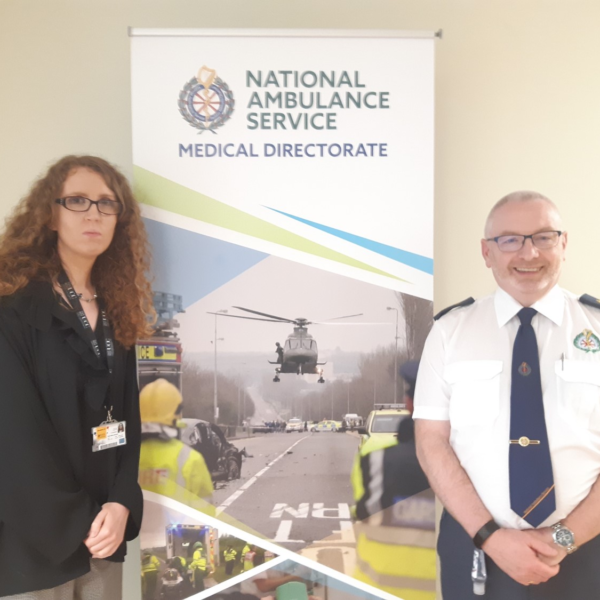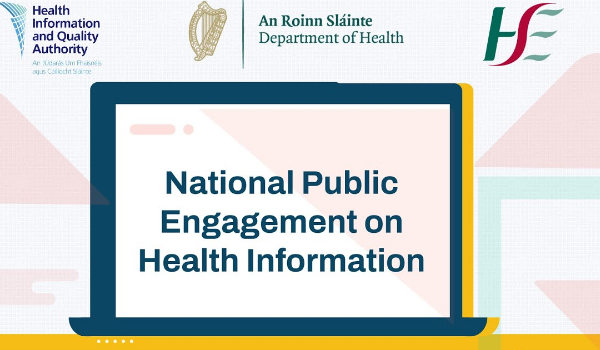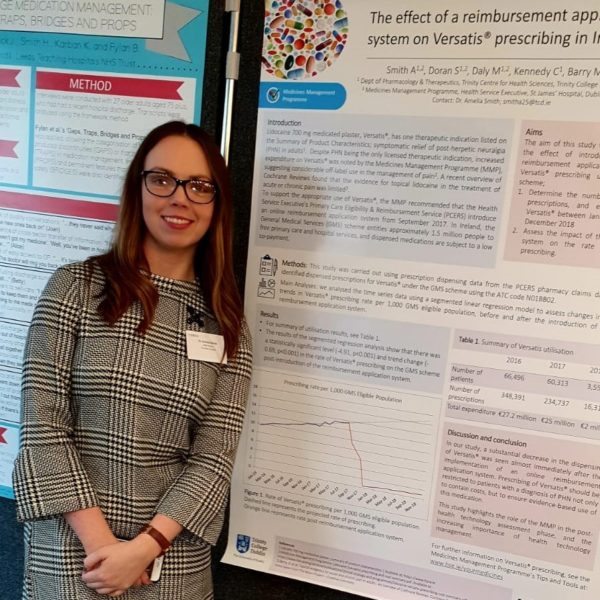An account of a SPHeRE national placement in the National Ambulance Service Clinical Directorate Edel Burton is a second year SPHeRE Scholar and Clinical Pharmacist who carried out her SPHeRE national placement in the National Ambulance Service (NAS) Clinical Directorate, in Dooradoyle, Limerick from March-May 2022. Edel’s placement supervisor was […]
SPHeRE Blog
Making Healthcare Accessible for Populations Experiencing Homelessness, by Dr Rikke Siersbaek
There is ample evidence which shows that populations who experience social exclusion and deprivation have poorer health outcomes than populations who do not. We also know that there is a gradient in health where wealthy populations experience significantly better health than those at the other end of the spectrum. This […]
Diabetes and undiagnosed depression in the over 50s in Ireland, England and the USA, by Niamh McGrath
Diabetes is estimated as posing a 24 – 33% increased risk of new depression cases (1,2). This is thought due to shared underlying biological mechanisms (3–6) as well as the psychosocial burden of living with diabetes, due to unhelpful cognitions and beliefs related to diabetes (7) and/or poor access to […]
National Public Engagement on Health Information in Ireland, by Dr Sarah Jane Flaherty
Health information relates to information on a person’s health; care that is being, has been or may be provided; and any other information required for the provision of care. Health information is invaluable both for managing direct patient care and also for reasons beyond direct care, such as health services […]
Health Technology Assessment of Medicines in Ireland, by Dr Caroline Walsh
The role of the NCPE, the HTA process and European collaborations Dr Caroline Walsh, SPHeRE cohort 2016-2020 Health Technology Assessor, National Centre for Pharmacoeconomics (NCPE) Health Technology Assessment (HTA) involves the assessment of evidence of comparative effectiveness, safety, cost-effectiveness and potential budget impact of health technologies for use by […]
Health Technology Management – A New Era in Safe and Cost-Effective Prescribing? by Dr Amelia Smith
The benefits of Health Technology Assessment (HTA) are widely appreciated; well conducted HTAs facilitate patient access to cost-effective technologies that can improve health outcomes, minimise the introduction of ineffective technologies, and contribute to value for money decisions in the context of limited healthcare resources. However, the HTA process does not […]
STEERing Environmental Epidemiology in Ireland, by Dr Paul Hynds and Dr Jean O’Dwyer
The study of infectious disease represents a complex, multi-disciplinary, data-driven pursuit to better understand the patterns and drivers of these infections. In recent years, the role of the natural environment and socio-dynamics have added another lens through which to elucidate the epidemiology of disease. In the Republic of Ireland, diverse […]
Low-Cost Monitoring of Local Air Quality and Public Health, by Dr Dean Venables
Air pollution is by far the most serious public health problem caused by environmental factors[1] and causes over 400,000 premature deaths in Europe each year.[2] Although air quality in Ireland is mostly good, winter evenings are an exception. At these times, air quality deteriorates sharply as burning of solid fuels […]
The Impact of the Pandemic on My PhD in Health Economics – A Poem by Gintare Valentelyte
On the 12th of March on a bright Thursday afternoon, An RCSI e-mail was circulated telling us to ‘Pack up and go home’. As I zipped up my bag with my laptop, some journal articles, and books, I said goodbye to my office colleagues, ‘See you in two weeks – […]
Death Rate Increases due to the COVID-19 Pandemic, by Seamus Coffey
When COVID-19 struck in early 2020 attention quickly turned to the impact the pandemic was having on excess mortality. Excess mortality is a very useful way to measure the total mortality impact of the epidemic. This is because it accounts for the fact that some of the people who died from COVID-19 […]











